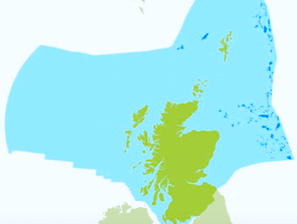By Mark McSherry
Scotland’s natural assets contribute more than £40 billion to the economy and support around 260,000 jobs, according to a new report called The Importance of Natural Capital to the Scottish Economy.
The report “highlights the vital economic contribution the natural world makes to Scotland and highlights the value of the ecosystems and the services they provide,” said the Scottish Government.
The report said important industries such as agriculture, fishing and aquaculture, forestry, water, food and drink and renewables all rely upon the continued availability of high-quality natural resources.
The research investigates the economic impact of natural capital, which is defined as “the renewable and non-renewable stocks of natural assets, including geology, soil, air, water and plants and animals that combine to yield a flow of benefits to people.”
The Scottish Government said it conducted the research “to provide the most up-to-date reflection of the true value of nature to the Scottish economy, as it is often undervalued or not included in economic assessments.”
It said the study demonstrates “the link between the threats to Scotland’s economic performance, and the economic opportunity associated with increasing nature dependent sectors.”
The Scottish Government said its National Strategy for Economic Transformation (NSET) “makes clear that working with and investing in nature is a top priority of Scotland’s wellbeing economy.”
NatureScot CEO Francesca Osowska said: “Nature is vital for our quality of life and that of future generations. In Scotland we are fortunate to have rich and varied landscapes and habitats, with individuals and businesses willing to step up to the challenge of stopping nature loss with hard work and investment.
“NatureScot is responding to this urgent need with leadership of vital programmes such as the £250m Peatland ACTION fund, the £65m Nature Restoration Fund and the innovative new Facility for Investment Ready Nature Scotland (FIRNS) which aims to both restore nature and benefit communities. “
